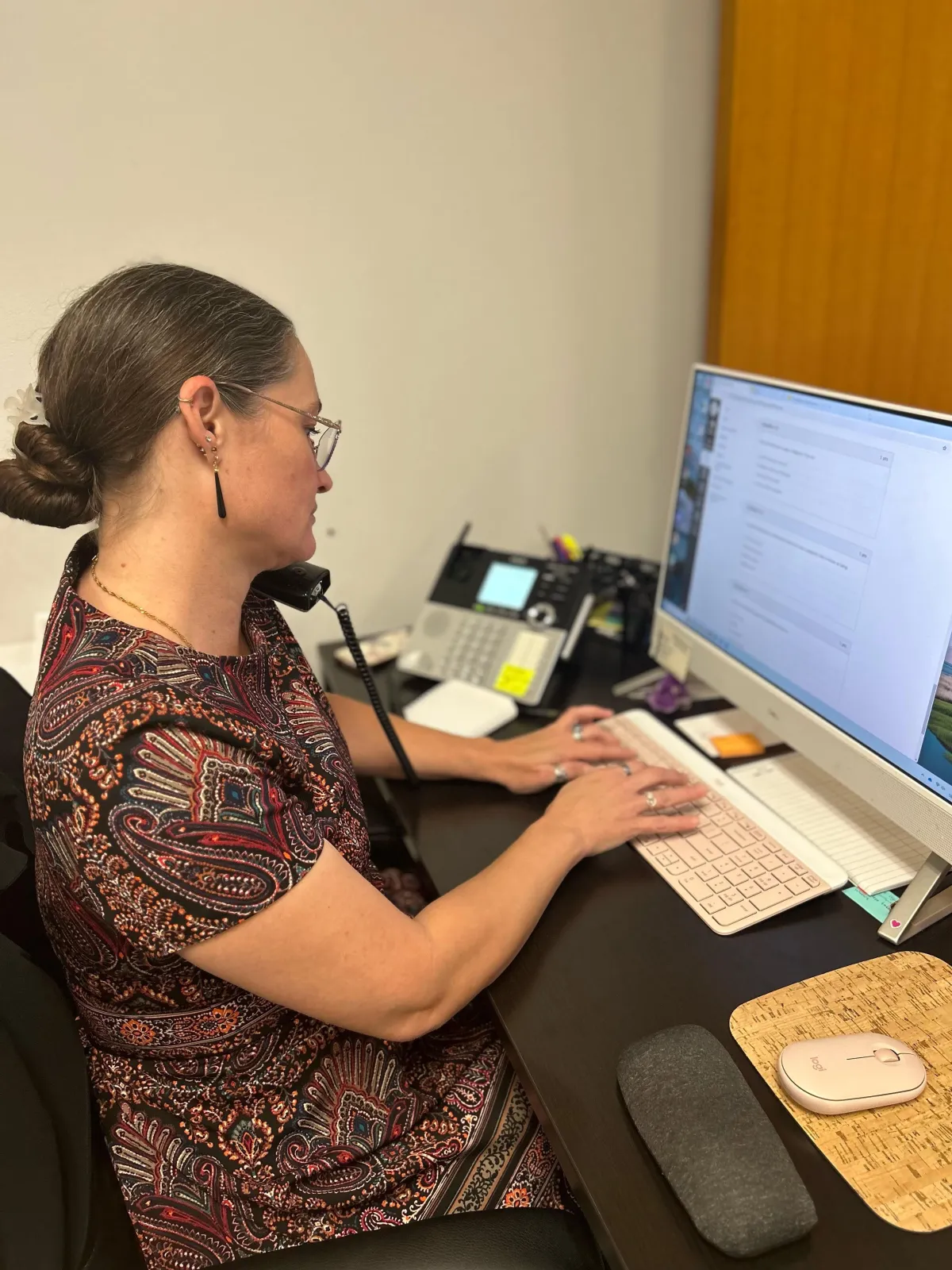About Us

About Inglis Family Law Firm
Inglis Family Law Firm was founded to provide logical, pragmatic legal guidance to clients facing family law challenges. Led by Christine Inglis, a family law attorney with over 15 years of experience, our firm is committed to helping clients achieve fair, efficient resolutions while minimizing conflict and protecting their financial future.
We understand that family law cases are deeply personal, often involving emotionally and financially high stakes. That’s why we take a solution-focused approach, working to achieve amicable outcomes while being fully prepared to litigate when necessary. Our clients, primarily high-earning male professionals, appreciate our straightforward, clear guidance that helps them make informed decisions about their cases.
Why Choose Us
15+ Years of Family Law Experience
Christine Inglis brings over a decade of family law experience, giving her a deep understanding of California law and how it applies to your case.
Personalized Attention
We handle every case personally, ensuring you receive the dedicated legal support you deserve.
Pragmatic Solutions
We focus on delivering practical, financially sound solutions that work for you and your family.
Staff
Meet Our Team
At Inglis Family Law Firm, our team is committed to providing you with the highest level of legal service and support. We are dedicated to helping you navigate family law matters with clarity and confidence.

Christine Inglis, Founding Attorney
With over 15 years of family law experience, Christine specializes in handling complex divorce cases, post-judgment modifications, and family law mediation. Her pragmatic approach focuses on protecting clients’ financial interests while minimizing conflict.
Ruby Cambaliza, Paralegal
Ruby supports clients throughout their cases by managing document preparation and assisting with legal filings, ensuring each step of the process is handled efficiently.
Recent Blog Posts

Protecting Your Business in Divorce
What Business Owners Need to Know When Divorcing in California
Why Divorce is More Complex for Business Owners
Divorce can be complicated and frustrating for anyone going through the process, but even more so for a self-employed person or business owner, particularly small business owners. From asset valuation to income disclosure, the unique financial structure of a business can add layers of complication that don’t exist in the average divorce. If you are self-employed or a small business owner, here is what you need to know about divorce for business owners in California.
Disclosure Requirements Under California Law
First, there are disclosure requirements outlined in the California Family Code that must be followed to get divorced in the state. You are required to provide a detailed accounting of all known assets and debts, even if you had them before marriage or acquired them after you separated from your spouse, along with back up documentation. You must also provide information regarding your income and expenses and attach two months worth of pay stubs and two years of filed tax returns. For business owners, instead of just providing pay stubs (which you also must provide if you pay yourself that way), you must provide two or more years worth of Profit and Loss Statements or Schedule C’s, your K1’s and filed business tax returns or 1099’s, essentially all other documents which prove your stated income and business expenses, along with those other required disclosure documents.
In the disclosures mentioned above, you will need to provide an estimate of the value of your business, which most business owners don’t know off hand, unless they’ve been in the market to sell it. You’ll need to assess the value of any real estate, vehicles, tools and equipment owned by the business, the funds on hand in the business’s bank and investment account(s) and any debts owed by the business. Those are relatively easy to quantify, but sometimes property needs to be appraised and there also may be a value to the goodwill of the business in the community. Often, an expert may need to be retained in order to determine the true value of the business.
How Business Valuation Works in Divorce
To make matters more complicated, you will also need to determine if the business is entirely your separate property, entirely community property, or a combination thereof. Community property is most property acquired between the date of marriage and the date of separation. So, if your business started during the marriage, it is likely to be deemed community property, unless you can show that the investment you made into the business (start up costs) came from property you inherited, received as a gift, or had prior to the marriage (or came from the sale of property you had prior to the marriage). The longer the marriage, the more difficult those exceptions are to prove, unless you saved all of your financial statements well beyond the length of time banks do. Separate property is property you had prior to marriage or can prove came from funds you inherited or received as a gift. Property is presumed to be community if it was acquired during marriage, so it is your burden to prove the funds came from the sources for an exception.
Is a Business Separate or Community Property in a Divorce?
As I said above, sometimes property can be both community and separate. For example, you started the business about 3 years prior to marriage, so it’s considered separate property, however during the marriage you put over a hundred thousand dollars of money you had earned during the marriage into the business and your spouse also worked to help you grow the business for several years of the marriage. The Court would look at the value of the business at the time you married and then assess how much the community (i.e. both of you equally) has put into the business and how much of that growth can be attributed to the community. So, even if your business was started prior to marriage, your spouse may have some claim to it.
Protecting Business Assets Before Divorce
Once you’ve reached the time when you are divorcing, there is not a lot you can do to protect your spouse claiming a portion of your business. If you are just starting your business or have a business and are planning to marry, it is important to speak with an experienced family law attorney about what you can do to protect that from happening with your business prior to marriage with a pre-nuptial agreement, or even after marriage with a post-nuptial agreement before you start the divorce process. You can reach agreements with your soon-to-be or current spouse regarding how certain assets will be treated and avoid a lot of the hassle of having the business characterized (community versus separate) and valued later on down the road, should you divorce or legally separate.
The characterization and value of a business are often hotly contested items in a divorce. The business owner often feels that the value of the business is low, or nothing at all, because without them putting in their “blood, sweat and tears”, it wouldn’t function or make any money. The spouse often feels that the business is worth considerably more as it’s been a source of how expenses have been paid during at least a portion of, if not the entirety of the marriage. The spouse typically has no idea of the value and will want a full accounting of the business’s income and expenditures, including those for personal use (whether or not authorized by the IRS) which is often the case with a small business owner. The Court is aware that many business owners are able to write off expenses for the business that may also be personal, so often there is scrutiny by the Court of whether or not listed business expenses are personal in nature.
Forensic Accounting and Financial Documentation
Often a forensic accountant is needed to review all of the bank statements, credit card statements, tax returns and other financial statements for the business and provide a report to the Court to assist the Judge in determining not only the value of the business, the characterization of the business, but also the business owner’s income available for support. Often forensic accountants can be hired by the parties jointly to assist them in reaching settlement, but if they do not agree, then at least one side will have to hire a second accountant to refute the findings of the first accountant. Sometimes both don’t agree with the findings and both hire their own accountants. This can become quite expensive quickly. The best way to avoid this is to keep your business and personal expenses separate and to prepare in advance for this scrutiny by keeping your records organized and hire a bookkeeper/CPA to prepare your taxes so they match your records. It doesn’t matter if you’re a self-employed barber or the owner of a company with a hundred employees, the demands are the same to make sure you provide an accurate assessment of the value of your business and it’s income.
Can You Keep the Business After Divorce?
As you can imagine, your business income will be important to determine accurately for purposes of calculating child and spousal support, as well as your ability to pay your own and potentially the other party’s attorney’s fees. Additionally, your spouse may be entitled to a portion of the value of your business. Once that value is determined, then you have to figure out how to accomplish paying your spouse his or her share of the business while also keeping the business running. Much of the time, the business’s value can be off-set by other assets in the divorce that are being kept by your spouse (i.e. you keep the business, I’ll keep the house, etc.). Sometimes that isn’t possible, so you can also agree on an equalization payment (a one time lump sum or payments over time) to equalize your spouse for their share of the value of the asset you are keeping.
It is quite rare for the Court to order a business to be sold in order to split the value between spouses. The reason for this is simple, it’s the source of income for one or both of the parties and forcing the sale would drastically change the parties’ ability to support themselves or each other. So, the Court, and the parties will try to find other ways to off-set the value being kept by one party to the other.
Business Continuity During Divorce Proceedings
Many business owners are also concerned about how the business can continue to function while the divorce process is ongoing. There are automatic temporary restraining orders that prohibit parties from transferring, hiding or otherwise utilizing assets during the divorce process, but there is an exception for the normal course of business. Essentially, you can continue to run the business as you always have while your divorce case is ongoing. But, a word of caution, make sure you discuss any large expenditures (personal or business) with counsel prior to making a purchase or transferring assets, etc. If you are found to be purposefully hiding or transferring assets without notifying the other party, that asset could be awarded entirely to your spouse.
Preparation Is Key To Protecting Your Business
While all of this information can be overwhelming, an experienced family law attorney can walk you through each step of the process and make sure that you understand what’s being asked of you and why. At Inglis Family Law Firm, we understand the pressure business owners are faced with when going through a divorce.
Speak With A Divorce Attorney Who Understands Business Ownership
With over ten years of California family law experience, I can advise you on what you can expect prior to or amidst a divorce. To schedule a consultation and discuss your situation further, please contact our office.

The information on this website is for general information purposes only. Nothing on this site should be taken as legal advice for any individual case or situation. This information is not intended to create, and receipt or viewing does not constitute, an attorney-client relationship.
Copyright © 2025 Inglis Family Law Firm - All Rights Reserved | Privacy Policy | Website Development by 95Visual


